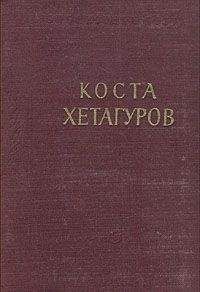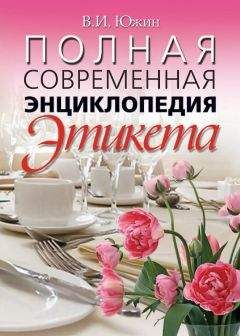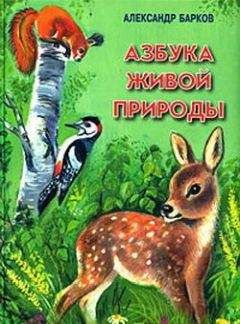Владимир Набоков - Стихотворения
443. FROM «A FEAST DURING THE PLAGUE»{*}
Pushkin's version of a scene in Wilson's tragedy «The City of the Plague»
Several men and women making merry at a table laid in the middle of the street.A Young Man Most honorable chairman! Let me now
remind you of a man we all knew well,
a man whose quiddities and funny stories,
smart repartees and pungent observations,
— made with a solemn air that was so pleasing —
lent such a sparkle to the table talk
and helped to chase the gloom which nowadays
our guest the Plague unfortunately casts
over the minds of our most brilliant wits.
Two days ago our rolling laughter greeted
the tales he told; t'would be a sorry jest
if we forgot while banquetting to-day
our good old Jackson! Here his armchair gapes;
its empty seat still seems to be awaiting
the wag; but he, alas, has left already
for a cold dwelling-place beneath the earth.
Though never was so eloquent a tongue
doomed to keep still in a decaying casket,
we who remain are numerous and have
no reason to be sorrowful. And so
let me suggest a toast to Jackson's spirit,
a merry clash of glasses, exclamations,
as if he where alive.
The Chairman He was the first
to drop out of our ranks. In silence let us
drink to his memory.
The Young Man Have it your way.
The Chairman (to one of the women) Your voice, my dear, in rendering the accents
of native songs reveals a wild perfection:
sing, Marry, something dolorous and plaintive
that afterwards we may revert more madly
to merriment — like one who has been torn
from a familiar world by some dark vision.
Mary (sings) In times agone our village
was lovely to behold;
our bonny church on Sunday
was full of young and old;
our happy children's voices
rang in the noisy school;
in sunny fields the reaper
swung fast his flashing tool.
But now the church is empty;
the school is locked; the corn
bends overripe and idle;
the dark woods are forlorn;
and like charred ruins the village
stands stricken on its hill:
no sound; alone the churchyard
is full and never still.
A new corpse every minute
is carried in with dread
by mourners loudly begging
God's welcome for the dead.
A new hole every minute
is needed for their sleep,
and tombs and tombs together
huddle like frightened sheep.
So if an early gravestone
must crown my springtime bright,
you whom I loved so dearly,
whose love was my delight, —
to your poor Jenny's body,
I pray, do not come near,
kiss not her dead lips; follow
with lagging steps her bier.
And after I am buried, —
go, leave the village, find
some place where hearts are mended
and destiny is kind.
And when the Plague is over
visit my dust, I pray…
But, even dead, will Jenny
beside her Edmund stay.
The Chairman We thank you, Mary, melancholy Mary,
we thank you all for this melodious moan.
In former days a similar infection
had visited, it seems, your hills and valleys,
and one could hear most piteous lamentations
sounding along the rivers and the brooks
which now so peacefully and gaily tumble
through the wild paradise of your dear land;
and that dark year in which so many perished,
so many gallant, good and comely souls,
has left but a vague memory that clouds
the elemental minstrelry of shepherds
with pleasing plaintiveness. Nothing, I swear,
so saddens us amid life's animation
as dreamy sounds that dreamy hearts repeat.
Mary Oh, had I never sung beyond the threshold
of the small cottage where my parents dwelt!
Dearly they used to love their Mary's voice.
Behind my song I felt as if I listened
to my old self singing in the bright doorway:
my voice was sweeter in those days: it was
the golden voice of innocence.
Louisa Such ditties
are nowadays old-fashioned; but one still
finds simple souls eager to melt when seeing
a woman weep: they blindly trust her tears.
She seems to be quite sure that her wet eyes
are most enchanting; and if just as highly
she ranked her laughter then you may be sure
she'd always titter. Walsingham had chanced
to praise the shrill-voiced Northern beauties; so
forthwith she wails her head off. I do hate
that yellow color of her Scottish hair.
The Chairman Listen! I hear the sound of heavy wheels.
The Chairman Aha, Louisa faints. I thought she had
a warrior's heart judging by her expressions —
but evidently cruelty is weaker
than tenderness: strong passions shy at shadows.
Some water, Mary, on her face. She's better.
Mary Dear sister of my sorrow and dishonor,
recline upon my breast.
Louisa (regaining her senses) A dreadful demon
appeared to me: all black with white eyes rolling,
he beckoned me into his cart where lay
piled bodies of dead men who all were lisping
a horrible, a most unearthly tale.
Oh, tell me please — was it a dream I dreamt
or did the cart pass really?
The Young Man Come, Louisa,
laugh in away. Though all the street is ours
— a quiet spot secure from death's intrusion,
the haunt of revellers whom none may trouble —
but… Well, you see, that black cart has the right
to roll and creak down any street in chooses
and we must let it go its way. Look here,
friend Walsingham: to cut short all discussions
that lead to women swooning, sing us something,
sing us a liberal and lively song,
— not one inspired by long mists of the Highlands
but some unbridled bacchanalian stuff
that sprung to life from wine-foam at a banquet.
The Chairman Such songs I know not, but I have for you
a hymn in honor of the plague. I wrote it
the other night as soon as we had parted:
I was possessed by a strange urge to rhyme
which never had I felt before. So listen.
My husky voice will suit this kind of poem.
Several Voices A hymn! A hymn! Let's hear our chairman sing it!
In honor of the Plague? Good. Bravo, bravo!
The Chairman (sings) When mighty Captain Winter swoops
upon us with his hoary troops,
leading against us all his grim
legions of frost and snow, —
logs crackling brightly laugh at him
and festive wine cups glow.
Her awful Majesty the Plague
now comes at us with nothing vague
about her aims and appetite;
with a grave-digger's spade
she knocks at windows day and night.
Where should we look for aid?
Just as we deal with Winter's pest
against this one it will be best
to stay in lighted rooms and drink
and drown our minds, and jest.
Come, let us dance upon the brink
to glorify Queen Pest!
There's bliss in battle and there's bliss
on the dark edge of an abyss
and in the fury of the main
amid foam-crested death;
in the Arabian hurricane
and in the Plague's light breath.
All, all such mortal dangers fill
a mortal's heart with a deep thrill
of wordless rapture that bespeaks
maybe, immortal life,
— and happy is the man who seeks
and tastes them in his strife.
And so, Dark Queen, we praise thy reign!
Thou callest us, but we remain
unruffled by the chill of death,
clinking our cups, carefree,
drinking rose-lipped maiden's breath
full of the Plague, maybe!
The Clergyman What godless feast is this, you godless madmen?
Your revelry and ribald songs insult
the silent gloom spread everywhere by death!
Among the mourners and their moans, among
pale faces, I was praying in the churchyard
whither the thunder of your hateful orgies
came troubling drowsy graves and rocking
the very earth above the buried dead.
Had not the prayers of women and old men
blessed the dark pit of death's community
I might have thought that busy fiends to-night
were worrying a sinner's shrieking spirit
and dragging it with laughter to their den.
Several Voices A masterly description of inferno!
Be gone, old priest! Go back the way you came!
The Clergyman Now I beseech you by the holy wounds
of One Who bled upon the Cross to save us, —
break up your monstrous banquet, if you hope
to meet in heaven the dear souls of all those
you lost on earth. Go to your homes!
The Chairman Our homes
are dismal places. Youth is fond of gladness.
The Clergyman Can it be you — you, Walsingham? the same man
who but three weeks ago stood on his knees
and wept as he embraced his mother's corpse,
and writhed, and rocked, and howled over her grave?
Or do you think she does not grieve right now —
grieve bitterly, even in God's abode —
as she looks down at her disheveled son
maddened by wine and lust, and hears his voice
a voice that roars the wildest songs between
the purest prayer and the profoundest sigh?
Arise and follow me!
The Chairman Why do you come
to trouble thus my soul? Here am I held
by my despair, by memories that kill me,
by the full knowledge of my evil ways,
and by the horror of the lifeless void
that meets me when I enter my own house,
and by the novelty of these wild revels,
and by the blessed poison of this cup,
and by the light caresses (God forgive me)
of a depraved but fair and gentle creature.
My mother's soul can summon me no more;
my place is here; too late!..I hear your voice
calling my soul… I recognise your efforts
to save me… but, old man, depart in peace —
and cursed be anyone who goes with you.
Several Voices Bravo, bravo! Well spoken, worthy chairman!
Now you have got your sermon, priest! Be gone!
The Clergyman Mathilda's stainless spirit summons you!
The Chairman No, — promise me, — with your pale withered hand
raised heavenward, — promise to leave unuttered
a name that death has silenced in the tomb.
Could I but hide from her immortal eyes
this sight, this banquet… Once upon a time
she thought me pure, free-spirited and proud,
and my embrace was paradise to her.
Where am I? Sacred child of light, I see you
above me, on a shore where my wrecked soul
now cannot reach you.
A Woman's Voice Look, he has gone mad,
he raves about his wife who's dead and buried.
The Clergyman Come, come with me.
The Chairman For God's sake, holy father,
leave me.
The Clergyman The Lord have mercy on your soul.
Farewell, my son.
444–445. FROM EUGENE ONEGIN




